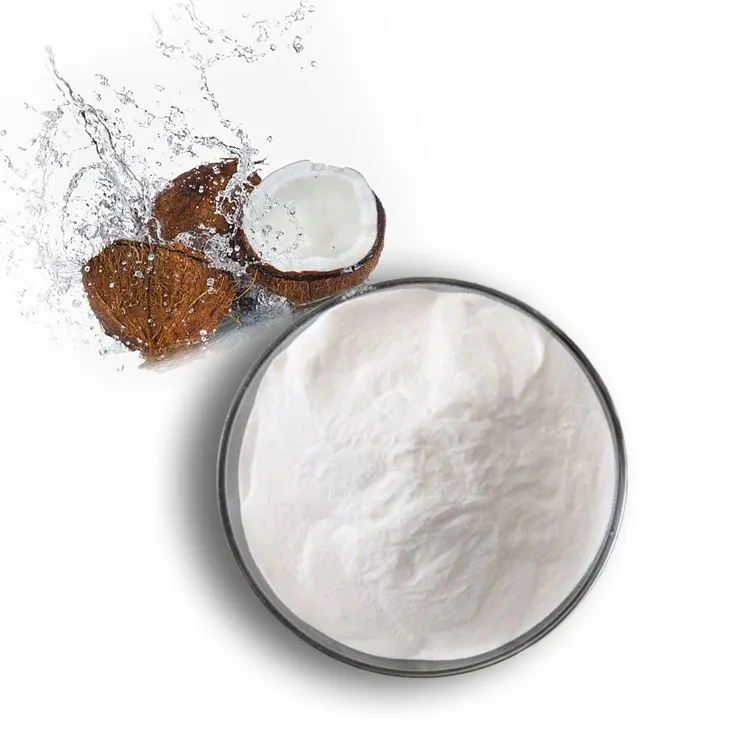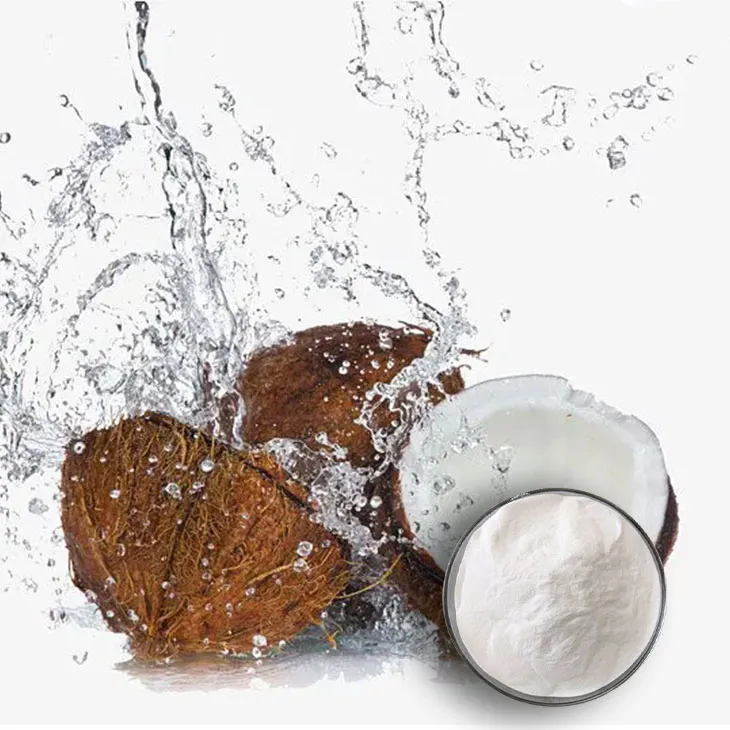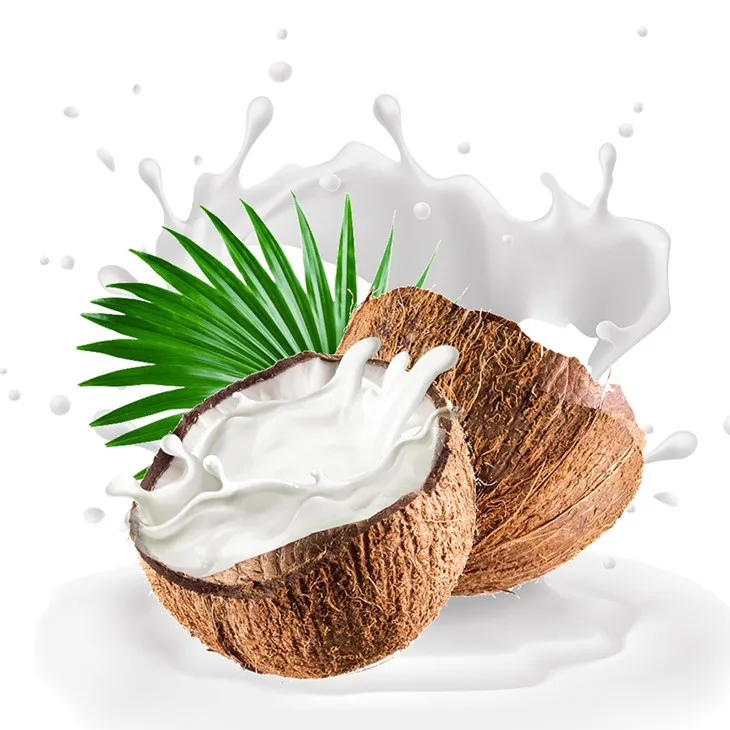- 0086-571-85302990
- sales@greenskybio.com
Coconut Water Powder Production: A Complete Guide for Consumers and Manufacturers
2024-12-19

1. Introduction
Coconut water has long been recognized as a refreshing and healthy beverage. In recent years, the popularity of Coconut Water Powder has been on the rise. This form of coconut water offers convenience, longer shelf - life, and easier storage compared to its liquid counterpart. This guide aims to provide a comprehensive understanding of Coconut Water Powder production for both consumers who are interested in using it and manufacturers involved in its production.

2. Benefits of Coconut Water Powder for Consumers
2.1. Nutritional Value
Coconut water powder retains many of the nutrients found in fresh coconut water. It is rich in electrolytes such as potassium, which is essential for maintaining proper heart function and fluid balance in the body. Additionally, it contains vitamins like vitamin C, which helps boost the immune system, and small amounts of B - vitamins that play important roles in energy metabolism.
2.2. Convenience
One of the major advantages of coconut water powder is its convenience. It can be easily stored in a pantry or cupboard without the need for refrigeration like liquid coconut water. This makes it an ideal option for people on - the - go, such as hikers, travelers, or those who simply want a quick and easy way to enjoy the benefits of coconut water. Consumers can simply mix the powder with water to reconstitute it and have a refreshing drink whenever they desire.
2.3. Versatility in Usage
Coconut water powder can be used in a variety of ways. Besides being reconstituted as a drink, it can be added to smoothies for an extra boost of nutrition and flavor. It can also be used in cooking and baking. For example, it can be incorporated into cakes, muffins, or energy bars to add a touch of tropical flavor and moisture. Some consumers even use it as an ingredient in homemade sports drinks, taking advantage of its electrolyte content.

3. Production Techniques for Manufacturers
3.1. Raw Material Selection
The quality of the coconut water used as the raw material is crucial in the production of high - quality coconut water powder. Manufacturers should source fresh, young coconuts, as the water from these coconuts generally has a better flavor and higher nutrient content. The coconuts should be carefully harvested to avoid any contamination or damage. After harvesting, the coconut water needs to be extracted promptly and carefully to preserve its freshness and quality.
3.2. Filtration
Once the coconut water is extracted, it typically goes through a filtration process. This is to remove any impurities such as pulp, fibers, or debris. Filtration can be done using various methods, such as membrane filtration or filter - press filtration. The goal is to obtain a clear and pure coconut water solution that will be used for further processing.
3.3. Concentration
After filtration, the coconut water is concentrated. This can be achieved through evaporation techniques, such as thermal evaporation or vacuum evaporation. Thermal evaporation involves heating the coconut water to evaporate the water content, while vacuum evaporation is carried out under reduced pressure, which allows for lower - temperature evaporation. The concentration process is carefully controlled to reach the desired solids content, which is important for the final quality of the powder.
3.4. Drying
The concentrated coconut water is then dried to convert it into powder form. There are different drying methods available, including spray drying and freeze - drying. Spray drying involves spraying the concentrated coconut water into a hot - air chamber, where the water rapidly evaporates, leaving behind fine powder particles. Freeze - drying, on the other hand, first freezes the coconut water and then sublimates the ice directly into vapor under low pressure, resulting in a powder with a high - quality texture and better preservation of nutrients.

4. Cost - Control in Production
4.1. Raw Material Sourcing
To control costs, manufacturers need to carefully consider their raw material sourcing. Establishing long - term relationships with reliable coconut suppliers can often lead to better prices. Additionally, sourcing coconuts from regions with high coconut production can also be cost - effective. For example, countries in Southeast Asia are known for their abundant coconut production, and manufacturers may explore partnerships in these areas to reduce raw material costs.
4.2. Energy - Efficient Production Processes
Energy consumption is a significant cost factor in coconut water powder production. Manufacturers should invest in energy - efficient equipment for processes such as evaporation and drying. For instance, using advanced vacuum evaporation systems can reduce the amount of energy required for concentration compared to traditional thermal evaporation methods. Similarly, modern spray - drying equipment with improved heat recovery systems can lower energy costs during the drying process.
4.3. Waste Management
Proper waste management can also contribute to cost - control. During the production process, there may be by - products such as coconut pulp and shells. Instead of discarding these, manufacturers can explore ways to add value to them. For example, coconut pulp can be used to produce other food products like coconut jam or used as an ingredient in animal feed. Coconut shells can be processed into charcoal or used for handicrafts, generating additional revenue streams and reducing overall production costs.
5. Regulatory Requirements for Manufacturers
5.1. Food Safety Standards
Manufacturers of coconut water powder must adhere to strict food safety standards. This includes ensuring that the production facilities are clean and hygienic, following good manufacturing practices (GMP). The raw materials should be free from contaminants such as pesticides, heavy metals, and harmful microorganisms. Regular testing of the final product for safety parameters is also required. For example, in many countries, there are limits on the levels of microbial contaminants like Salmonella and Escherichia coli in food products, and coconut water powder must meet these standards.
5.2. Labeling Requirements
Accurate labeling is an important regulatory aspect. The label of coconut water powder should clearly state the product name, ingredients, nutritional information, usage instructions, and any relevant warnings. For example, if the product contains allergens such as nuts (in case of cross - contamination during production), it must be clearly indicated on the label. Additionally, the country of origin and batch number should also be included for traceability purposes.
6. Conclusion
In conclusion, coconut water powder offers a range of benefits for consumers, from its nutritional value to its convenience and versatility. For manufacturers, understanding the production techniques, cost - control measures, and regulatory requirements is essential for successful production. By following best practices in all these aspects, manufacturers can produce high - quality coconut water powder that meets the demands of consumers while also ensuring compliance with regulations. As the market for coconut water powder continues to grow, both consumers and manufacturers can look forward to more opportunities in this area.
FAQ:
What are the main raw materials for coconut water powder production?
The main raw material is, of course, coconut water. High - quality fresh coconut water is typically sourced. Sometimes, additional ingredients may be added for preservation or to enhance certain properties during the production process, but coconut water forms the base of the powder.
What are the health benefits of consuming coconut water powder?
Coconut water powder is rich in electrolytes such as potassium, which can help maintain proper hydration levels in the body. It also contains vitamins and minerals that can support overall health. Additionally, it may have antioxidant properties that can help fight against free radicals in the body.
What are the key production techniques in coconut water powder manufacturing?
One key technique is the evaporation process. This can be done through methods like spray drying or freeze - drying. Spray drying involves spraying the coconut water into a hot chamber where the water evaporates quickly, leaving behind the powder. Freeze - drying first freezes the coconut water and then removes the water through sublimation, which can better preserve the nutrients.
How can manufacturers control the cost in coconut water powder production?
Manufacturers can control cost in several ways. Sourcing coconuts from regions with abundant supply and lower cost can be a start. Optimizing the production process to reduce energy consumption during drying is also important. Additionally, efficient inventory management to avoid waste of raw materials and finished products can contribute to cost - control.
What regulatory requirements need to be met for coconut water powder production?
Manufacturers need to meet food safety regulations, which may include standards for hygiene in the production facility, proper labeling requirements, and compliance with maximum residue limits of any pesticides or chemicals that might be present in the coconut water. In different regions, there may also be specific regulations regarding the use of additives or preservatives in food products.
Related literature
- The Production and Nutritional Benefits of Coconut Water Powder"
- "Coconut Water Powder: Manufacturing Processes and Quality Control"
- "Regulatory Aspects of Coconut - Based Food Products, Including Coconut Water Powder"
- ▶ Hesperidin
- ▶ citrus bioflavonoids
- ▶ plant extract
- ▶ lycopene
- ▶ Diosmin
- ▶ Grape seed extract
- ▶ Sea buckthorn Juice Powder
- ▶ Beetroot powder
- ▶ Hops Extract
- ▶ Artichoke Extract
- ▶ Reishi mushroom extract
- ▶ Astaxanthin
- ▶ Green Tea Extract
- ▶ Curcumin Extract
- ▶ Horse Chestnut Extract
- ▶ Other Problems
- ▶ Boswellia Serrata Extract
- ▶ Resveratrol Extract
- ▶ Marigold Extract
- ▶ Grape Leaf Extract
- ▶ blog3
- ▶ blog4
- ▶ blog5
-
Pure 85% Tomentil Extract.
2024-12-19
-
Epimedium extract powder
2024-12-19
-
Almond Extract Powder
2024-12-19
-
Dandelion Leaf Extract
2024-12-19
-
Phyllanthus Emblica Extract
2024-12-19
-
Yohimbine Bark Extract
2024-12-19
-
Red Vine Extract
2024-12-19
-
Centella Asiatica Extract
2024-12-19
-
Andrographis Paniculata Extract Powder
2024-12-19
-
Quercetin
2024-12-19
-
Citrus Aurantium Extract
2024-12-19





















